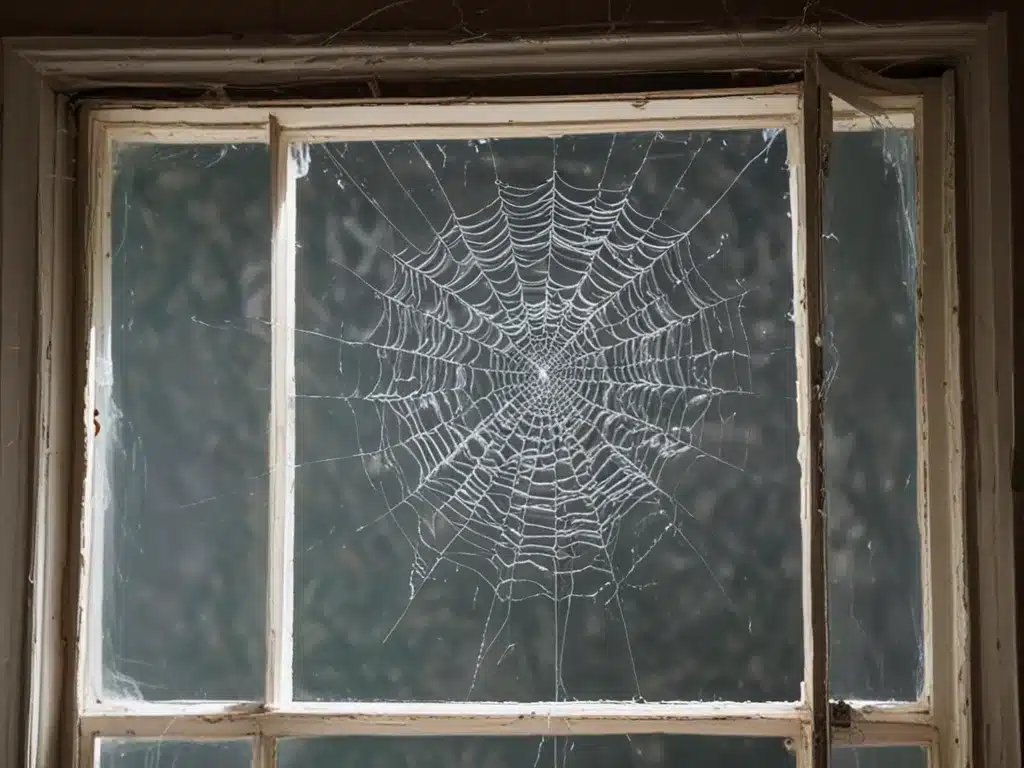Cobwebs can build up in the corners of your home before you know it. Getting rid of them is an important part of my house cleaning routine. Here are my tips for effectively sweeping away cobwebs both inside and outside my house.
Why It’s Important to Remove Cobwebs
Cobwebs may look harmless, but they can cause a few issues if left alone:
-
Dust and dirt accumulation – Cobwebs trap dust and dirt particles, causing buildup over time. This can worsen indoor allergies.
-
Spider infestations – Cobwebs are a sign of spiders. If the cobwebs remain, it invites more spiders to move in and build nests.
-
Unsightly appearance – Cobwebs simply look unclean and messy. They detract from the visual appeal of your home’s interior and exterior.
Regularly removing cobwebs promotes cleanliness and prevents spider infestations. It’s a simple task that makes a big difference!
Supplies Needed
Sweeping away cobwebs is easy with the right tools:
-
Broom – An ordinary household broom is effective for cobwebs in most indoor and outdoor areas. Look for one with stiff bristles.
-
Duster – A microfiber duster on an extendable pole helps reach cobwebs in high corners or ceilings.
-
Vacuum – A vacuum hose attachment can suck up cobwebs in nooks and crannies.
-
Ladder – A sturdy ladder allows you to access exterior cobwebs on gutters, eaves, and rooflines.
-
Protective gear – Wear gloves, long sleeves, and a mask to avoid spider bites and dust inhalation.
Sweeping Indoor Cobwebs
Here are some tips for eliminating cobwebs inside your home:
Inspect and Target Cobweb Locations
Cobwebs tend to accumulate in corners, ceilings, window frames, furniture crevices, and along walls. Carefully inspect each room and target these areas. Use a broom or duster to remove them. For high or hard-to-reach spots, use a vacuum hose attachment.
Clean Cobwebs in Order from High to Low
Work from top to bottom when sweeping away cobwebs in a room. This stops fallen debris from resettling in cleaned areas. Start by dusting corners of the ceiling then work down walls and into corners of the floor.
Combine with Seasonal Deep Cleaning
Tackle cobwebs during seasonal deep cleaning for a thorough job. For example, clear cobwebs when you clean ceiling fan blades or wash windows. Finding and eliminating their roots keeps them from coming back quickly.
Removing Outdoor Cobwebs
Outdoor cobwebs also need periodic removal. Here are some effective steps:
Inspect Overhangs, Plants, and Decor
Check areas where cobwebs tend to form outside. Common spots include porch ceilings, gutters, roof overhangs, bushes and trees, furniture, and exterior decor. Shine a flashlight at night to see them clearly.
Use Tools to Safely Reach High Spots
Use a broom or duster with an extendable pole to safely clear cobwebs from second story exterior areas. Wear protective gear to avoid spiders and dust. Bring a ladder for cobwebs that can’t be reached from the ground.
Rinse Webs Away with Water
For siding, fencing, or other solid exterior surfaces, rinsing with a garden hose can wash away cobwebs efficiently. Avoid spraying electronic items like porch lights.
Stay Vigilant After Rain or High Winds
Cobwebs tend to appear after rain or winds as spiders rebuild webs. Re-inspect exterior areas periodically and sweep the new growth away before it accumulates.
Preventing Cobwebs from Returning
No matter how thoroughly you clean, some cobwebs will recur. Here are smart ways to make them less frequent:
-
Seal cracks and crevices – Caulk or seal openings inside and out to discourage spiders from entering.
-
Use essential oils – Applying peppermint, tea tree, lavender or eucalyptus oil deter spiders.
-
Remove clutter – Storing items tightly limits web building spots.
-
Install lights – Adding lighting deters cobwebs in dark corners.
Vigilance is key! Keeping watch for new growth and promptly removing webs will keep your home clear. With some persistence, you can sweep those pesky cobwebs away for good!







